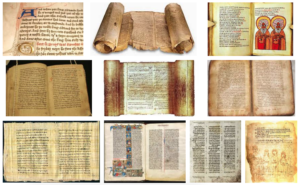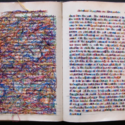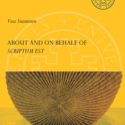 I recently read the book Misquoting Jesus: The Story Behind Who Changed the Bible and Why, by Bart D. Ehrman, on my brother’s recommendation. The book traces the transformations—intentional and otherwise—that gave us the Bible that we have today. Ehrman discusses how copyists over the ages altered the text to, for instance, obfuscate the women and harmonize the accounts of Jesus in the New Testament. The book problematizes the situation for those that favor a literal interpretation of the Bible: If we believe the Bible is God’s word, or at least divinely inspired, then it’s a major challenge that we don’t have any of the original texts.
I recently read the book Misquoting Jesus: The Story Behind Who Changed the Bible and Why, by Bart D. Ehrman, on my brother’s recommendation. The book traces the transformations—intentional and otherwise—that gave us the Bible that we have today. Ehrman discusses how copyists over the ages altered the text to, for instance, obfuscate the women and harmonize the accounts of Jesus in the New Testament. The book problematizes the situation for those that favor a literal interpretation of the Bible: If we believe the Bible is God’s word, or at least divinely inspired, then it’s a major challenge that we don’t have any of the original texts.
(As an aside, Ehrman doesn’t seem to appreciate a narrative, pathic reading of the Bible as a tome of mythological force. He himself seems to fall prey to the literal reading of the Bible that he denounces. For a literate, rather than literal, view of the Bible, see Rob Bell’s recent book What is the Bible?)
“The original texts”—what does that mean? While this maybe ought to be a straightforward question, it is anything but. Ehrlman describes how, for example, Paul’s letter to the Galatians (part of the New Testament canon) was most likely originally dictated and immediately existed in multiple manuscript copies that were sent out (to the “Galatians,” which demonym is itself a bit ambiguous) and then copied further. Our earliest version of Galatians is from over a hundred years after these “originals.” Since then, the letter was copied and transformed by any number of hands and cultures, generating a family tree of differences.
The printing press, when it came along in the 15th century, lent some stability to textual reproduction. But even with print, it’s no easier to say what the “original” is. Shakespeare, for instance—there’s the perduring question of the original scripts (and also of pronunciation!). In any printed text, which is the original: is it the first edition, of which there may be many and multiple printings? The printer’s proof? How about the second edition which includes corrections of the printer’s errors? How about the author’s final manuscript (if such a thing exists)?
And today, when many documents are “digital native,” our situation is in many ways more like a scriptorium than a printing house. Getting to the “original” is as devilish a task as ever. Think about quotes we come across that appear with some variation and with attribution to any number of people that we can’t pin down where they actually came from.
All over, we’re reaching for originals. What we don’t seem to ask, is why. Why do we care about the original? It’s sure to be a case-by-case question. In some disputes, discerning what the original document actually said is of central importance. But in cases such as the Bible, I am tempted to conclude that it’s irrelevant.
 Follow
Follow

